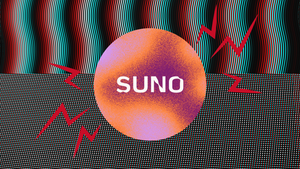The major record companies have amended their lawsuit against Suno, adding a section alleging that the AI company acquired “many if not all” of the sound recordings it copied into its training dataset by “illicitly downloading them from YouTube using a notorious method of music piracy known as ‘stream ripping’”.
That additional piracy allegation could be crucial in the context of the recent ruling in the legal battle between a group of authors and AI company Anthropic, the first major judgement considering the copyright obligations of AI companies under US law.
In that case, the judge ruled that AI training constitutes ‘fair use’, meaning Anthropic didn't need permission from the authors to copy their books as part of its training processes. But only if it had initially sourced the books through legitimate channels.
Anthropic had, in fact, downloaded millions of e-books from piracy sites, meaning - although the judge had accepted its argument that AI training was fair use - it was still potentially facing trillion dollar liabilities for copyright infringement because of the pirated books.
So much so, earlier this month it agreed to a provisional $1.5 billion settlement deal with lawyers who are representing a large class of American writers.
The copyright industries, including the music industry, continue to argue that AI training is never fair use, and hope that the US courts will ultimately reach that conclusion on appeal.
However, in the meantime, any copyright owners suing AI companies that are believed to have acquired training content from piracy sources are busy amending their lawsuits to say so, presumably hoping that those AI businesses may also be quickly pressured into ten figure settlement deals.
The group of music publishers that also sued Anthropic have already begun the process of amending their lawsuit. And now the major labels are doing the same in relation to their Suno litigation.
Given reports that there have already been some settlement talks between Suno and the majors, the additional piracy claims in the context of the Anthropic judgement will likely give the record companies more negotiating power.
However, not every AI start-up has access to quite the same cash reserves as Anthropic, which closed a $13 billion funding round with a $183 billion valuation shortly before committing to pay $1.5 billion to the authors. That settlement, therefore, uses up just 11.5% of the company’s recent investment boost.
But it’s still worth getting the explicit piracy claims into any copyright lawsuits against AI companies that are working their way through the system. In their amended lawsuit, the majors explain that ripping music files from YouTube violates the Google-owned site’s terms and conditions, as well as breaching the US Digital Millennium Copyright Act.
The amended lawsuit, coordinated by the Recording Industry Association Of America, says, “YouTube allows users to ‘stream’ content - playing it as it is retrieved - but it is not designed to allow and actually prohibits making permanent, unrestricted copies of the content it streams”.
To that end, “YouTube employs enhanced technological measures to protect against unauthorised downloading and copying of licensed content”, such as the sound recordings uploaded to the YouTube platform by the majors.
And, crucially, US copyright law prohibits the circumvention of such technological measures. Meaning Suno breached copyright law when it ripped music off YouTube. Meaning it sourced its training data by employing piracy tactics. Meaning, even if AI training is in principle fair use, Suno’s AI training was not.
The argument that stream ripping music from YouTube breaches copyright law, because it involves circumventing YouTube’s technological content protection measures, has been made before when the music industry has sued the providers of stream ripping services.
In the amended Suno lawsuit, the majors write, “by ‘stream ripping’ audio files from YouTube, Suno circumvented technological measures implemented by YouTube that effectively control access to copyrighted works in violation of the US Copyright Act”.

